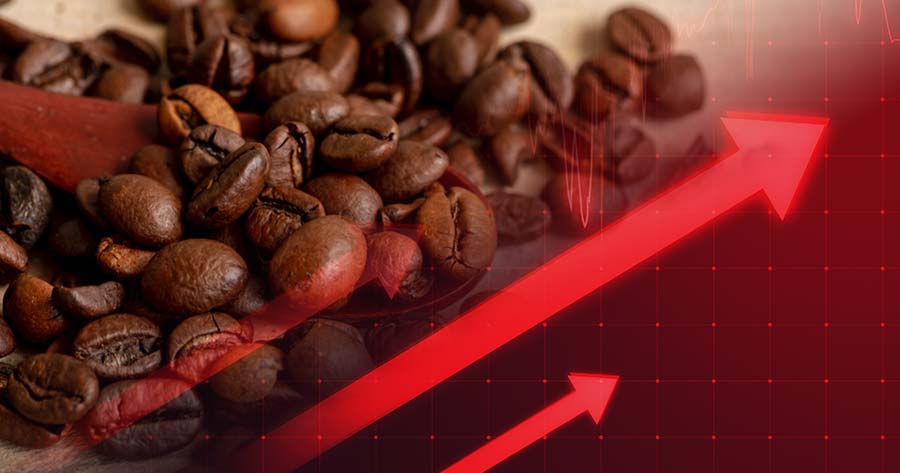At the annual convention of the U.S. National Coffee Association in Houston, industry experts expressed concern over the recent 70% spike in Arabica coffee futures on the ICE exchange since November.
As coffee traders and roasters grapple with these rising costs, many have scaled back their purchases to essential levels.
Renan Chueiri, Director General of Ecuador’s ELCAFE C.A., noted that his company is experiencing a significant slowdown in sales, with less than 30% of annual production sold by March, a stark contrast to previous years when sales would usually be complete by this time.
The sharp increase in prices has strained clients’ cash flows, limiting their ability to make purchases.
The surge in coffee prices is attributed to diminished production in key growing regions, particularly Brazil, the leading coffee producer. This has resulted in reduced bean availability, pushing buyers to adopt a “hand to mouth” strategy, purchasing only as needed without stockpiling.
A broker disclosed that recent transactions in Brazil have been executed with heightened caution, entailing immediate quality checks and in-situ payments before taking possession of the coffee.
A Reuters forecast suggests that Arabica prices may drop 30% by year-end if demand falters and Brazil yields a significant harvest next year. However, the current high prices have already sown distress throughout the sector.
A CEO of a leading U.S. roasting company reported that discussions with supermarkets and grocery chains regarding price adjustments are protracted, leading to supply shortages on retail shelves. The situation remains dire for some businesses unable to sustain operations at elevated price levels.
Warehouses near U.S. ports, crucial points for Central and South American coffee imports, report holding only half their typical stock. Some storage companies are even relinquishing silo leases due to dwindling volumes.
Michael Von Luehrte of MVLcoffee predicts potential consolidation within the trading arena, as firms with larger capital bases might increase their market share, leaving others struggling with limited financing.
Commodities giant Louis Dreyfus highlighted in a presentation that coffee cultivation is expanding in response to the price increment across countries like India, Uganda, Ethiopia, and Brazil.
An ample Brazilian crop, combined with these new plantings, could lead to a significant price downturn, according to the company.





